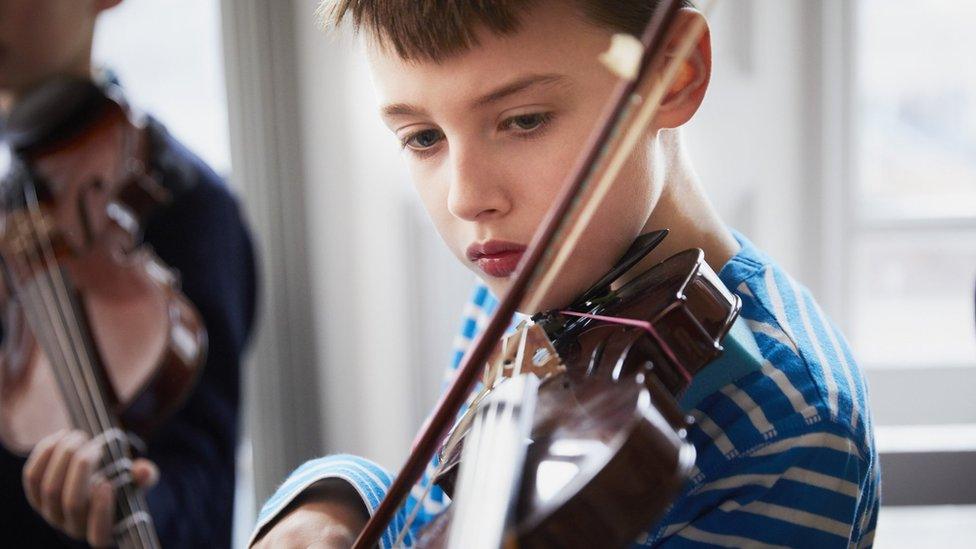Study backs link between music and cognitive ability
- Published

A link between children learning how to play a musical instrument and improved thinking in later life is backed by a new study.
Musicians were found to do slightly better in tests of their cognitive ability than those who had not played an instrument.
The study was carried out by the University of Edinburgh and Edinburgh Napier University.
It found the link was seen even when other factors were taken into account.
The study comes after the University of Edinburgh produced a paper last year suggesting a link between playing an instrument and better cognitive skills in old age.
Out of the 420 participants in the latest study, 167 had some experience of playing a musical instrument, mostly during their childhood or teenage years.
Those who had experience playing an instrument had a small but detectable association with better performance in tests of processing speed and visuospatial reasoning.
New database
Researchers said the results did not prove that musical training enhanced cognitive skills, since unexplored factors may have contributed to the findings.
However, they said the results clearly showed that playing a musical instrument might contribute to staying sharper in later life.
The study, funded by Age UK and the Economic and Social Research Council, is published in the journal Psychology and Aging, external and was a collaboration between researchers in the fields of psychology and music.
Dr Judith Okely, of Edinburgh Napier University, said: "We see these results as an exciting starting point for further investigation into how musical experience from across the life course might contribute to healthy ageing."
Anyone over 18 can volunteer to join a new database to contribute to future studies. The researchers are particularly interested in hearing from people who have retired.